As you dive into your internship, make sure you are always considering how the experience you are gaining is going to be worked into your resume.
1. Define the start and finish of your internship project(s): Having a defined beginning and end to your project, along with defined goals, will allow you to point to specific accomplishments. It will also likely increase job satisfaction. Even if what you are working on is open-ended, make sure you have concrete responsibilities for your portion of the project.
Before: Supported CFO during company-wide profitability analysis.
After: Conducted profitability analysis as part of company-wide review, presenting CFO with recommended price increases for three customer segments, targeting $XM new revenue.
2. Identify what you will be able to quantify: Ensure that you are able to point to quantifiable results. As you define your responsibilities, quantify as much as possible, even if the overall project is not complete by the time summer is through. It will help your impact feel more real to future readers of your resume.
Before: Participated in ongoing efforts to increase customer satisfaction, assisting with online surveys and one focus group.
After: As part of ongoing project to increase customer satisfaction, conducted three online surveys and one focus group; used results to recommend three new customer service initiatives; initial implementation led to 5% increased customer satisfaction.
3. Keep your long-term goals in mind: If your ultimate desire is to end up in an industry other than the one you’re interning in, make sure the bullets you craft reflect that. For example, consider a scenario in which the individual hopes to land in VC, but is currently a consulting intern.
Before: Aided client with conducting competitive intelligence as they sought partner for proposed merger.
After: Performed due diligence to conduct competitor valuation and presented summary of strategic vision to the CFO, contributing to client’s decision to attempt merger with key competitor.
4. Keep an eye out for redundancies: As you gain new skills and accomplishments, consider whether they can serve to replace bullets that currently exist on your resume.
Before (from position before business school): Served on company-wide, cross-functional committee to measure employee satisfaction; oversaw four-member communications; increased employee satisfaction metrics by X%.
After (from internship): Headed twelve-person committee to track and quantify impact of all interns’ summer projects, leading to increased productivity company-wide.
5. Leave room for future accomplishments: Remember that you will continue to add to your resume throughout the summer and into the fall. Make sure you earmark some bullets for possible deletion or trimming, making space for student group leadership, awards, or other accomplishments that may arise before full-time recruiting.
